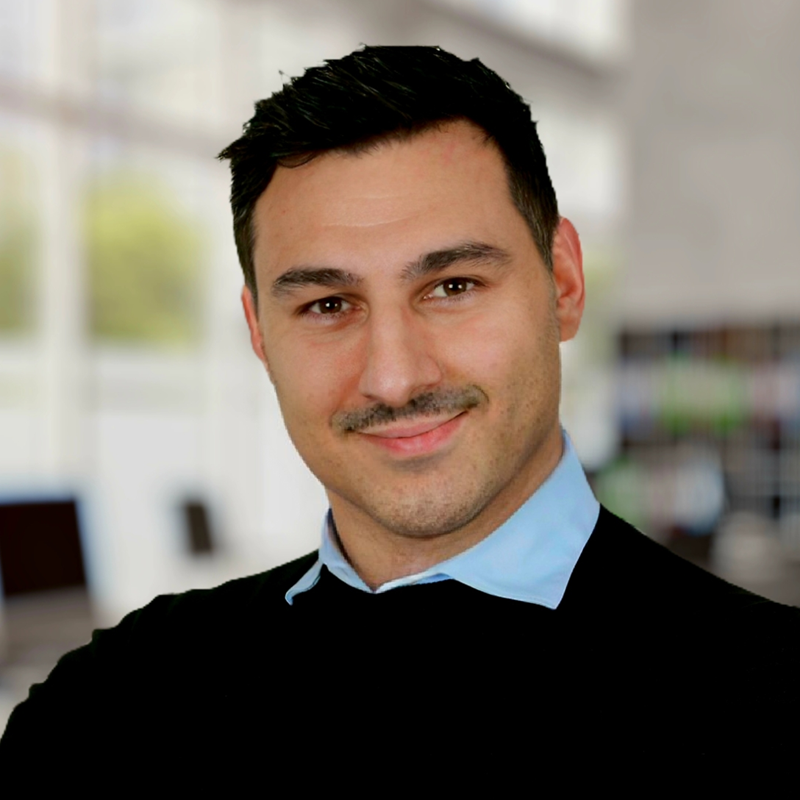
David Palma, PhD, DE
received his MSc degree magna cum laude in Electronic Engineering and his PhD degree with Honours and the Doctor Europaeus distinction for international academic achievements in Industrial and Information Engineering from the University of Udine, Italy, in 2017 and 2021, respectively. Currently, he holds the position of Professor of Information Security at the same institution, having previously been a Research Associate within the Distributed and Dynamical Systems Research Group. From 2017 to 2018, he worked as an external consultant specialising in ICT systems design and software development at the Friuli Innovazione Research and Technology Transfer Centre. From 2018 to 2019, he was a Doctoral Researcher in the defence and security field with the Control and Power Research Group at Imperial College London, United Kingdom. Since 2018, Professor Palma has been a reviewer for leading international journals and conferences across various security-related fields, including biometrics, computer networking, cryptography, cyber-physical security, distributed computing, systems theory, neural networks, and machine learning. In 2022, he won the first place in the competition for full professorship in Electrical and Electronic Engineering (A040 competition class). In 2023, he was the recipient of the PhD Award issued by the University of Udine to the most talented PhD researcher for distinguished contributions to the fields of science and technology. Furthermore, he received the EUROSIM PhD Award nomination for demonstrating excellence in the application of modelling and simulation techniques to solve global challenges in the scientific field. Related to his research interests, he has been an ICT and cybersecurity consultant on behalf of judicial authorities and law enforcement agencies as well as private companies.
Research interests
His main research interests focus on the area of multidimensional signal processing, image analysis, pattern recognition, and dynamical systems theory, from both a theoretical and practical perspective and with applications across various security-related domains, ranging from biometrics for identification, surveillance, encryption, and medical diagnosis, to the detection of cyber threats and attacks within cyber-physical systems and critical infrastructures.
- A branch of his research focuses on the theory, design, and application of biometric characterisation of human beings, based on physiological and/or behavioural traits, in particular for authentication, identification, or surveillance purposes in both cooperative and non-cooperative scenarios, encryption, and medical diagnosis.
- A second branch of his work revolves around the study of novel and smart methods to improve the detection and prevention of cyber-threats and attacks for core underlying technologies used in cyber-physical systems and critical infrastructures.
- The last branch of his research aims to explore innovative technological solutions necessary for the development of next-generation pervasive computing systems allowing ubiquitous networks of devices to intelligently cooperate towards common goals in context-aware applications.
Reviewer
- Automatica
- Cybernetics and Systems
- IEEE Access
- Information Fusion
- International Journal of Fuzzy System Applications
- Journal of Computers and Information Technology
- Journal of Network and Systems Management
- Neurocomputing
- Phytopathology
Professional memberships
- Member of IEEE
- Member of IEEE Aerospace and Electronic Systems Society
- Member of IEEE Control Systems Society
- Member of IEEE Signal Processing Society
- Member of IEEE Biometric Council
- Member of IEEE Systems Council
- Member of IEEE Sensors Council
Additional info
Beyond his professional life, he was a light-heavyweight boxer, first with the Udine Boxing Association in Udine, Italy, and later with the Moreno Boxing Club in London, UK. Prior to that, he earned certification as a karate and martial arts instructor from the European Federation of Karate and Associated Disciplines (FEKDA). Notably, he secured victories in several competitions in both disciplines. Additionally, he shared his expertise as a karate and self-defence instructor at the Shotokan Karate Sports Centre in Milan, Italy.
You can find a more detailed Curriculum Vitae on LinkedIn. You can also visit the Google Scholar, Academia, and GitHub profiles.